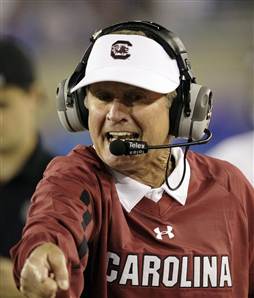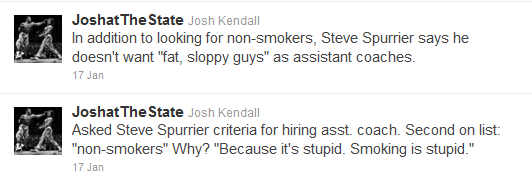Smoking and Sloppiness
We all know the job market is tough - lots of competition for any decent position, tricky and mind-bending interview questions, lack of reliable feedback during the process, hiring managers unwilling to make the call on the offer - you get the idea. In addition to the clear and obvious barriers and hurdles to that job seekers have to overcome, there can often be another set of hidden, and much less obvious things that might result in a candidate getting eliminated from contention for the job.
These are the kinds of attributes we generally like to classify as 'fit', which is kind of a made up construct to collect all those traits or background elements that we can't really quantify or easily justify in our screening process, but we know what they are when we see, hear, smell them. 'Fit' could come to mean just about anything depending on the organization, position, or whim of the hiring manager. Did the candidate graduate from Auburn and the boss bleeds Alabama Crimson? Maybe the candidate spent the last few years at a company known for its freewheeling and anything goes culture, and your shop thinks cutting loose is casual Friday during the summer. Or maybe a solid candidate just went a little too heavy on the Jean Nate after-bath splash and you couldn't really concentrate on anything they said in the interview.
Or, if you are looking to get hired as an assistant football coach working for the 'Ol Ball Coach Steve Spurrier on the University of South Carolina staff, you might not want to be a smoker. Or fat and sloppy.
Yep, according to a couple of tweets from a Coumbia State newspaper reporter, the 'Ol Ball Coach when asked what he was looking for in potential assistant coaches, Spurrier said he wanted non-smokers, and also had a dislike for 'fat, sloppy guys.' Here are the tweets from the press conference:

Not great if you happen to be a good coach that is a smoker who is also fat and sloppy. It is kind of tough to take a lot of offense with Spurrier's point of view, many companies are now starting to penalize smoking employees with health insurance surcharges, and some are refusing to hire smokers at all.
The 'fat and sloppy' part of the opinion is perhaps less defensible. But like smoking, and at least in Spurrier's opinion, being 'fat and sloppy' suggests something about a candidate, that they won't be a good public face for the team, that they might be undisciplined, or they might not been seen to 'project' some kind of image that Spurrier envisions for the team. Truth is, it is hard to know what exactly is in Spurrier's head, or any hiring manager's for that matter, when they start evaluating, ranking, screening, etc. on these kinds of 'fit' factors.
If you are a job seeker, you already have a lot going against you, mostly things you can't do much about. It might be too late and too expensive to get that Harvard MBA, or score 10 years of 'progressive managerial responsibility' in the EXACT industry you applied to.
But if you are still smoking you probably can quite. And you might be able to lose a couple of pounds. And tuck in that shirt while you are at it. You never know what you're begin graded on, so you might as well assume it is everything.

 Steve
Steve